Dark had set on the Fijian rainforest. In the mud and rain, Jason Magness and his teammates happened upon a bamboo frame. They draped a tarp over, and made camp for the night. The last few hours the group had clambered their way through a dense, steep valley they believed would bring them to the base of Vuwa Falls—a tiered, thousand-foot cascade they needed to ascend—only to discover they made navigational errors and had just spent the day traversing the wrong valley.
Magness, Daniel Staudigel, Melissa Coombes, and Stephen Thompson of Team Bend Racing were in Fiji participating in the 2019 Eco-Challenge, an 11-day, 400-mile adventure race aired on Amazon Prime Video in August 2020 as The World’s Toughest Race. Team Bend started the multi-discipline event sprinting to a lead in their outrigger canoe. Then trekking on the island of Ovalau, Staudigel succumbed to severe heat illness, and was barely able to move under his own power. Within 14 hours from the start, Bend Racing slid from first position to nearly last, unsure about the health of Staudigel (pictured below), or if they would have an opportunity to finish.
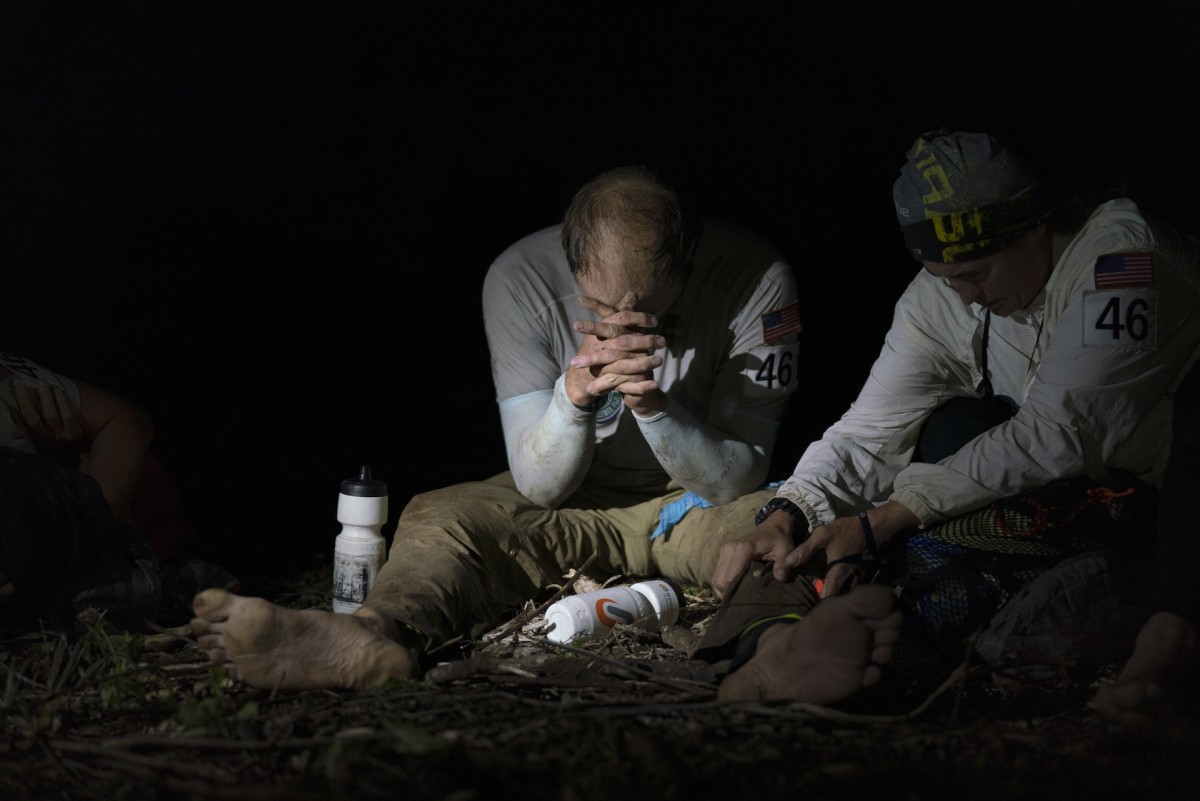
Five days and nearly 280 miles later, slogging on sleep deprivation and sufferfest-ing across the South Pacific environment through stages of trekking, whitewater rafting, and mountain biking, Staudigel’s health improved, and Bend Racing was rallying in celebratory spirits. That was, until they found themselves lost in a valley somewhere in the center of the Fijian island of Viti Levu. Inevitably tired, confused, and with frustrations mounting, the team again found their race in jeopardy.
The spoiler: Magness and company reached Vuwa Falls and eventually the best finish of any American team, in seven-and-a-half days and 14th place.
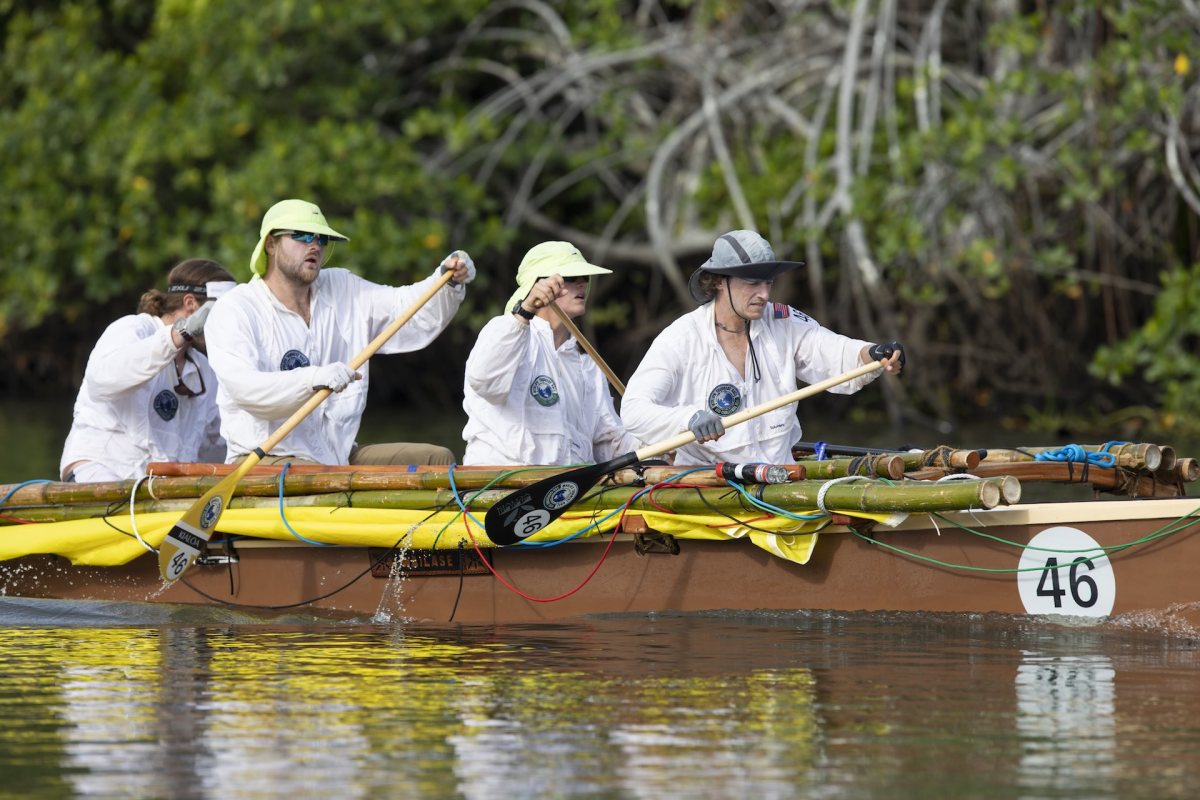
Team Bend Racing was far from the only group encountering issues. Wilderness survival situations are par for the course during the Eco-Challenge. But when you have an event where a third of the 66 capable teams would not even finish, you have to ask what abilities are at work to complete the race beyond fitness and orienteering?
Magness cites skills like finding the path emotionally, psychologically, and with the people around you. Something he and his twin brother (and original climbing partner) Andrew keyed into first watching the Eco-Challenge on television together. “My brother and I really got into climbing and mountaineering, and did some big climbs and first ascents going into our 20s,” says Magness. “I remember seeing the Eco-Challenge on TV. In some of those early versions of it they showed a lot more of the divisiveness and complaining on the teams. We were watching and asking each other why they were fighting? We knew enough from our climbing expeditions that fighting was the surest way to have all of your plans go astray. Those are the people you are trying to survive with.”
Getting un-lost from a Fijian mountainside might appear far from the daily trials of most, but Magness, who has participated in adventure races since 2003, sees adversity, whether it be in the wilderness or at home, as being on the same map. The soft skills Team Bend Racing continually hones were tested in Fiji. Here, Magness shares insight into how they carried them to complete the Eco-Challenge.
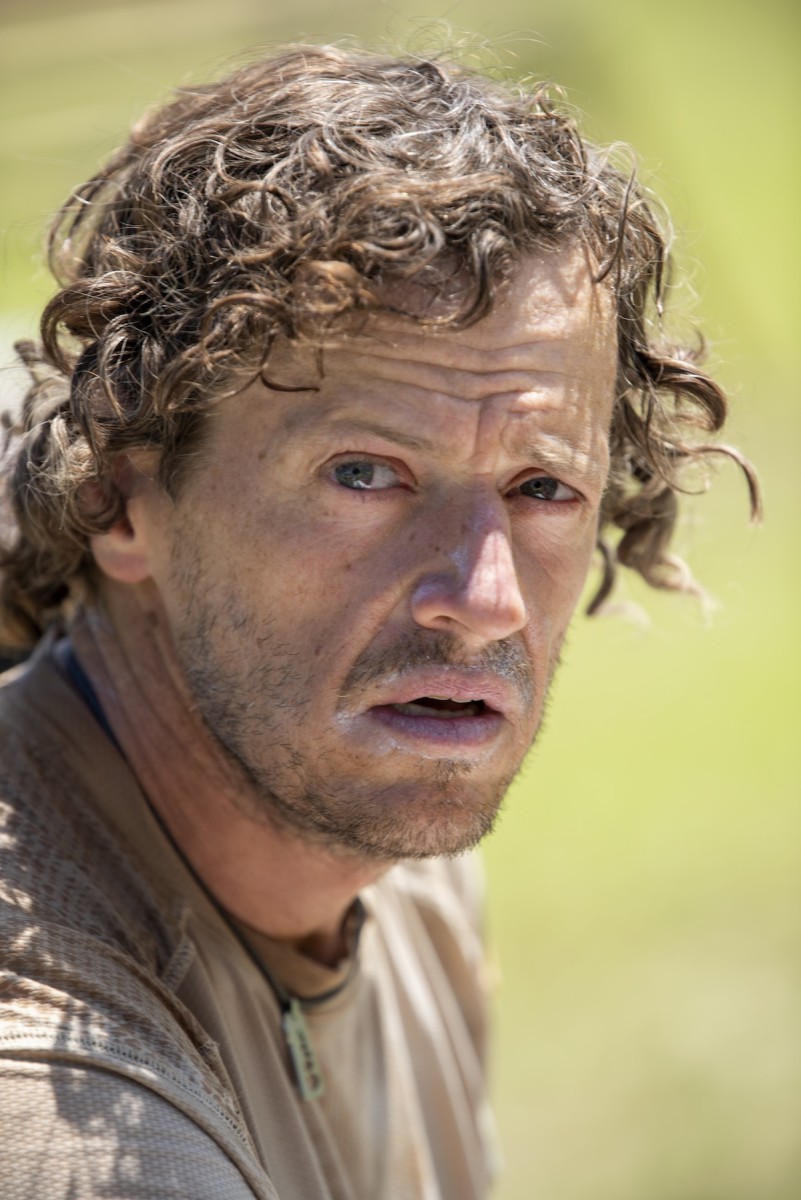
Be honest with yourself and those around you
“We have vent sessions. You have to work to allow people’s feelings to be valid. Whether the basis behind them is correct or incorrect is a different conversation. But the feelings themselves are valid. Once we feel heard in that sense it’s easier not to just keep fighting and keep going into a dark place. It takes the wind out of the sails of that negative emotion. Things are the most dangerous when you are resisting them.” Magness, who co-founded Bend Racing with his wife and oftentimes teammate Chelsey Magness, values this honesty within the team which plays a significant role for a larger philosophy both in the sport and at large that he can’t emphasize enough, “You have to value relationships.”
Give discomfort a chance
“We have a rule that at any point any one of us can say, ‘I’m done with this, I want to go home.’ There is no judgment,” says Magness, understanding in these races if a team member quits the entire group’s race is finished. “But it comes with a caveat. Once you decide that, we continue for 24 hours and when that time has passed see if you still feel that way.
The arbitrary time period acts as a structured mechanism to allow someone the ability to go through a process with their circumstances. A team member initiates the clause in just about every event, but they have yet to throw in the towel, and they know if they ever do it will be the right call. “Once you get comfortable with being uncomfortable you open up your possibilities. Often we react too early and rob ourselves of an opportunity to grow and adapt.”
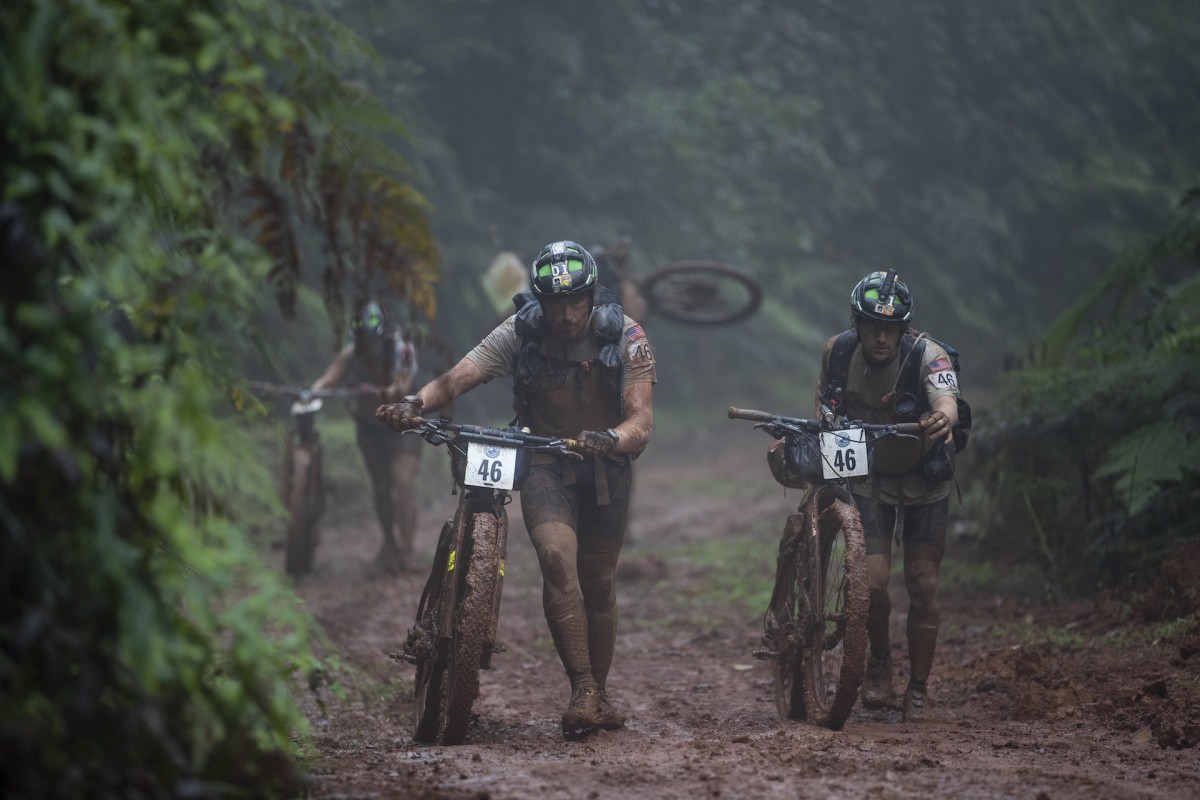
Don’t overlook the power of rest
In a 24-hour open racecourse sleep comes at a premium. Teams sleep on only a few occasions for limited time, and operate through most of the 400-mile event largely sleep deprived. Magness argues sometimes resting is the best thing you can do for yourself, but often overlooked. If you are exhausted, or having difficulty solving an argument sometimes the best option is to take an old piece of advice. Sleep on it, and see where you are afterward. This is exactly what Bend Racing decided was the best course of action during trying times lost in search of Vuwa Falls. “That is one of the best reset buttons there is and not enough teams know when to use it. It didn’t work in our favor for anything else except that we got to mentally reset.”
Stay pointed toward the positive and celebrate even small success
“You have to see yourself succeeding. It becomes this driving mental picture and you don’t even have to know how it’s going to happen but you have this overall image of success. We set these little tiny goals so that we have successes, and we are very cognizant of doing that in our race when we don’t actually know if we can keep going.
When Dan had heat exhaustion we were dragging him up a mountain for three hours that took most teams half an hour. The last thing we said before he went to bed was that he succeeded at something. The next morning a lot of the success for Dan was if could drink a mouthful of water, that was it. Whatever the task ahead is, the last ten things you did you succeeded at and so the next task you will also.
As soon as you drop out when things get hard you are setting neurological patterns. Luckily our pattern is we will find our way through anything because that is what has always happened. As soon as you have that as your default you are pretty much unstoppable. Because that is the honest expectation, that you are going to find a way to finish every endeavor that you’ve started.”
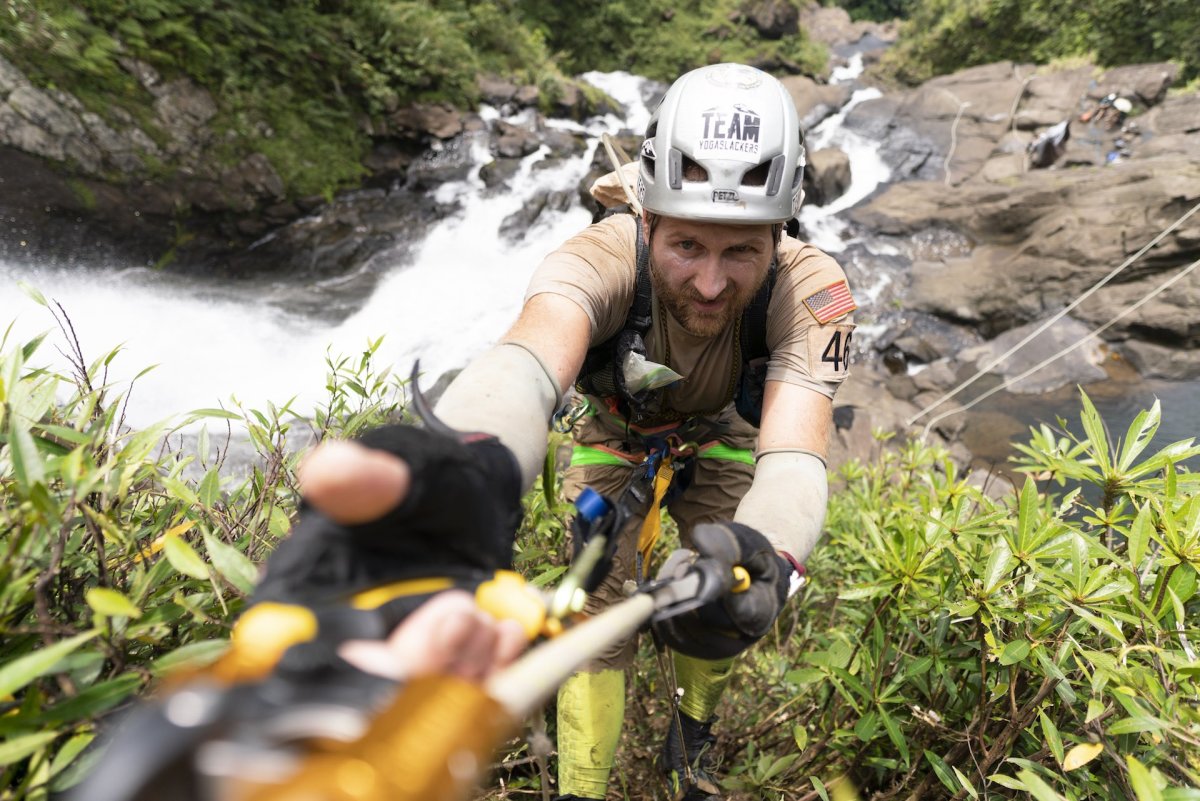
Write your own epic
Growing up, Magness and his brother Andrew had two constant outlets, the outdoors, and the fantasy world of Dungeons & Dragons. The game played at a table might seem far from the realm of scaling mountains, but Magness sees them as complementing one another and providing creativity in difficult circumstances. “The imagination is a huge tool. In any epic story there are heroes overcoming overwhelming odds. When we race we look at it this way. Like we are on a quest and becoming our own legend. All the things that go wrong become part of our story and not a blame or a fear. When we survive something I let these things become larger than life in my mind, because that’s fun. Those are the moments you want to imprint on your soul as a human.” says Magness. “It’s empowering. You get to choose your own story. You can go over a mountain or around a mountain, but no matter the outcome you keep moving forward.”
from Men's Journal https://ift.tt/2Mxk3rs
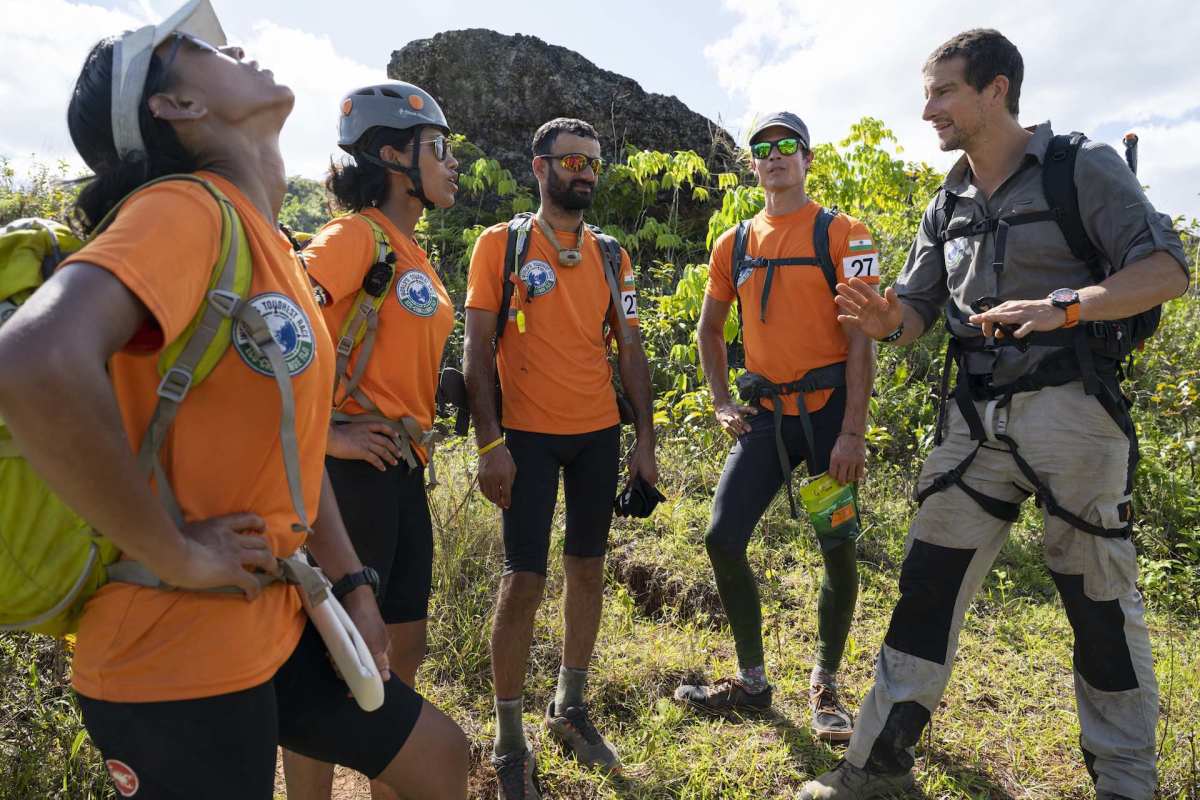





0 comments